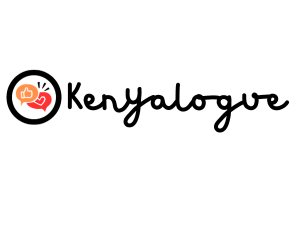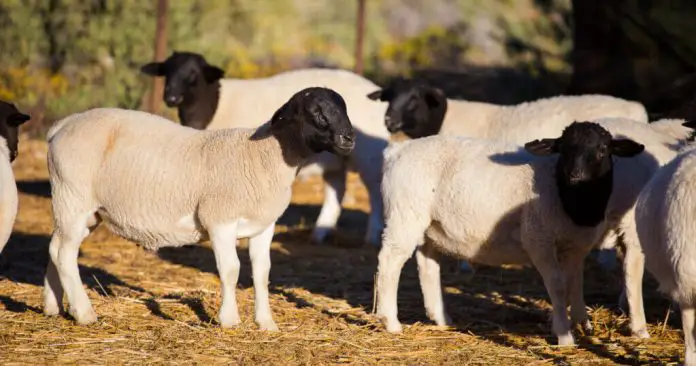Dorper farming is popular in Kenya because Dorpers grow quickly and can reach a weight of 40 kg in just four months, making production incredibly cost-effective.
According to research, it gains about 90 grammes of weight per day.
The weight gain can be boosted and you can reach your goal weight more quickly if you incorporate a proper nutrition into your plan.
How Long Does A Dorper Sheep Take To Mature?
It depends on several factors, such as genetics, nutrition, and environment.
But they are typically ready for sale at 4 months of age. But many farmers wait longer in order to get the mutton-quality meat.
Pros and Cons of Dorper Sheep
Pros
- Meat Production: Dorper sheep are known for their high-quality meat, which is lean and flavorful. They are fast-growing and have a good feed-to-meat conversion ratio, making them an excellent choice for commercial meat production.
- Adaptability: Dorper sheep are well-suited to a range of climates and environments. They are hardy and can tolerate both hot and cold temperatures, as well as dry and arid conditions.
- Low Maintenance: Dorper sheep are relatively low-maintenance compared to other breeds of sheep. They require minimal shearing and have a natural resistance to parasites.
- Fertility: Dorper sheep are highly fertile and have a high twinning rate, which can increase the productivity of a flock.
Cons
- Cost: Dorper sheep can be relatively expensive to purchase, especially if you are looking for high-quality breeding stock. The purebred variety can cost up to Ksh 50, 000.
- Temperament: Like most sheep breeds, Dorper sheep can be jumpy and difficult to handle. This can make them challenging for novice shepherds.
- Reproduction: While Dorper sheep are highly fertile, they may have difficulty with lambing if they are not properly managed. This can result in higher mortality rates for both lambs and ewes.
What Are The Housing And Space Requirements For Dorper Sheep?
Shelter
Dorper sheep require shelter from the elements, including wind, rain, and extreme temperatures.
The shelter should be dry, well-ventilated, and free of drafts.
A simple three-sided shed can provide adequate shelter for a small flock, while larger flocks may require more substantial housing.
Space
The amount of space required for Dorper sheep will depend on the size of the animal and the number of sheep in the flock.
As a general rule, each adult sheep should have a minimum of 16 to 20 square feet of indoor space, with additional outdoor grazing space.
However, providing more space is always better for the health and welfare of the animals.
Ventilation
Proper ventilation is essential to prevent respiratory problems in Dorper sheep.
The shelter should have good air circulation, and windows or vents should be positioned to allow fresh air to enter and stale air to exit.
Flooring
The flooring of the shelter should be dry and clean, with good drainage to prevent moisture buildup.
Concrete, dirt, or gravel floors are common options.
Feed and water
Adequate feed and water should be provided for Dorper sheep.
The feeding area should be clean and dry, and hay racks or feeders can help prevent wastage.
Water should be available at all times and should be clean and fresh.
What Is The Best Feed For Dorper Sheep?
The best feed for Dorper sheep depends on a variety of factors, such as the age of the sheep, their body condition, and their production goals (meat production, wool production).
Here are some general guidelines for feeding Dorper sheep:
Forage
Dorper sheep are well-suited to grazing and can thrive on a diet of high-quality forage, such as pasture grasses, legumes, and hay.
Fresh forage is ideal, but hay can be provided as a supplement during periods of low forage availability.
Supplements
In addition to forage, Dorper sheep may require supplements to meet their nutritional needs.
This may include grain or other concentrated feeds, such as corn, barley, or soybean meal.
The amount and type of supplement will depend on the age and production goals of the sheep.
Minerals and vitamins
Dorper sheep require a balanced supply of minerals and vitamins to maintain good health.
This can be provided through a commercial mineral mix or through natural sources, such as salt blocks or kelp.
Water
Adequate access to clean, fresh water is essential for Dorper sheep.
Water should be provided at all times, and water sources should be cleaned and checked regularly.
Challenges of Dorper Farming
Disease
Dorper sheep are susceptible to a range of diseases and parasites, including internal and external parasites, respiratory diseases, and metabolic disorders.
Good management practices, such as regular deworming, vaccination, and hygiene, can help prevent and control disease outbreaks.
Market demand
While Dorper sheep are known for their high-quality meat, the market demand for lamb can fluctuate based on consumer trends and economic factors.
It’s important to research the local and regional demand for lamb before investing in a Dorper flock.
Cost
Raising Dorper sheep can be expensive, especially if you are purchasing high-quality breeding stock, supplements, and other inputs.
It’s important to carefully manage your expenses and to consider the potential return on investment when making management decisions.
Environmental factors
Dorper sheep are adaptable to a range of environments, but extreme weather conditions such as drought, flooding, and extreme temperatures can impact their health and productivity.
It’s important to monitor your flock and adjust your management practices as needed based on weather conditions and other environmental factors.
How Much Is A Dorper Sheep In Kenya?
In Kenya, farmers rear Dorpers for slaughter or breeding.
The price of Dorper sheep for slaughters ranges from Ksh 6000 to Ksh 25, 000.
The price for dorper sheep for breeding ranges from Ksh 30,000 shillings to Ksh50,000.
Where to buy or sell Dorper sheep in Kenya
Here are the options for buying or selling Dorper sheep in Kenya
Breeder Associations
There are several breeder associations in Kenya that specialize in Dorper sheep, such as the Dorper Sheep Breeders Association) and Kenya Livestock Breeders Association.
These associations can connect farmers with reputable breeders and provide information about upcoming sales and events.
Online Marketplaces
There are several online marketplaces where farmers can buy and sell livestock, such Jiji Kenya and Mkulima Young.
These platforms allow sellers to advertise their Dorper sheep to a wider audience and enable buyers to search for specific breeds and locations.
Livestock Markets
There are several livestock markets throughout Kenya where farmers can sell their livestock directly to buyers.
These markets are often held on specific days of the week and are advertised in local newspapers and on social media platforms.
Examples include Dagoreti livestock market (the largest in Kenya), Rumuruti Livestock Market and Isiolo Livestock Market
Is Dorper Farming Profitable In Kenya?
Dorper sheep farming can be profitable in Kenya, but the profitability of this enterprise depends on various factors such as the cost of inputs, market demand for lamb and sheep products, and the productivity of the flock.
Here are some factors to consider when assessing the profitability of Dorper sheep farming in Kenya:
Market demand
The demand for lamb and sheep products can fluctuate depending on the time of year, consumer trends, and economic factors.
It’s important to research the local and regional market demand for lamb before investing in a Dorper flock.
Productivity
Dorper sheep are known for their hardiness and adaptability, and they can thrive on a range of feed sources.
However, the productivity of the flock can vary based on the quality of feed, breeding, and management practices.
Farmers should strive to maintain high levels of productivity by providing good nutrition, timely deworming and vaccination, and other management practices.
Input costs
The cost of inputs such as feed, supplements, labor, and healthcare can impact the profitability of Dorper sheep farming.
Farmers should carefully manage their expenses and consider the potential return on investment when making management decisions.
Value addition
Farmers can increase the profitability of their Dorper sheep enterprise by adding value to the products they produce, such as by processing and packaging lamb for sale to high-end markets, or producing wool for commercial purposes.
Related: Galla Goats Farming in Kenya



